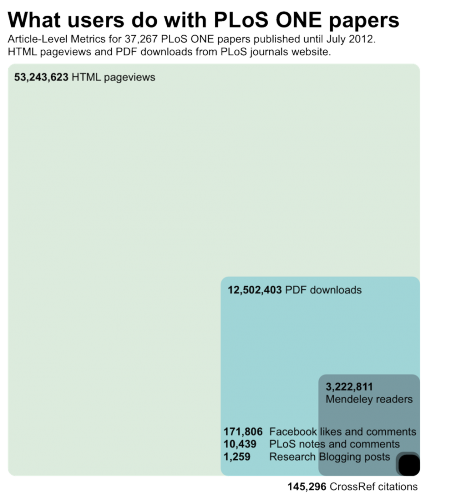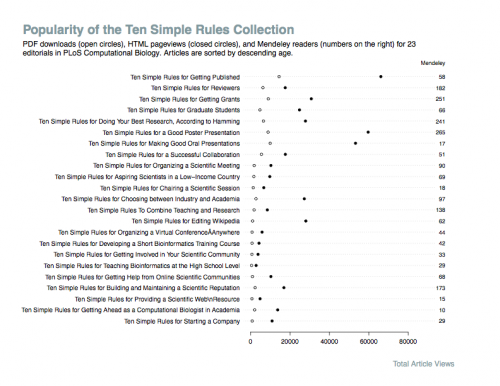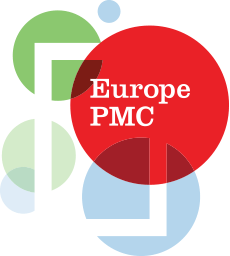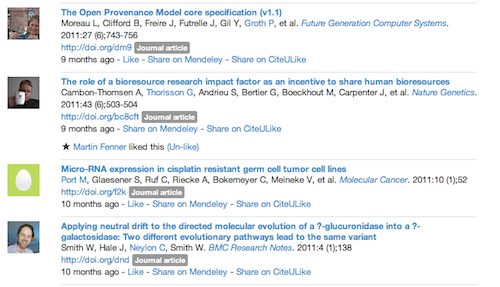
Inspired by four recent blog posts and their comments (Comments at journal websites: just turn them off, Open Access and The Dramatic Growth of PLoS ONE, No Comment?, If you email it, they will comment), I created a graphic to show what users do with PLoS ONE papers. As always, the data behind the graphic are openly available.






